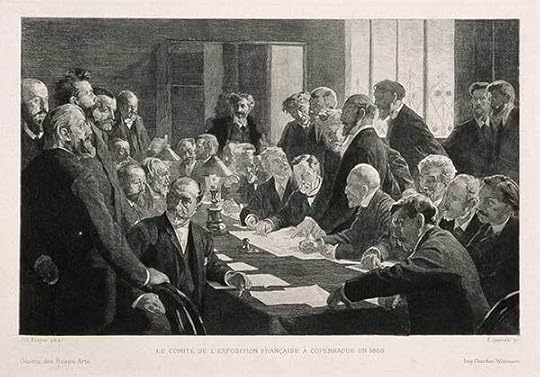Spelling Reform and after

The comments on my recent post (22 June 2022) made me return to the subject of Spelling Reform. Let me repeat that I did not generate that sample and that I have views on the subject but no agenda to promote. Though I have written several essays on the Reform and though there is nothing new to add to what has been said many times, it might still be useful to dot a few i’s and even cross a couple of t’s.
With regard to the Reform, the world is divided into several groups. Some people have studied the problem and realized that the monstrously erratic spelling of Modern English should be reformed, not because it would be a good thing to do but because the way we today spell is injurious to our children and to millions of foreigners (since at present, English is the main international language, we cannot say: “Who cares?”). Those people want to make written English spelling as accessible to speakers as possible. Another group is sympathetic to the Reform but would prefer to change a few things here and there and stop. Finally, some dyed-in-the-wool opponents will not accept any changes.
It may be useful to get rid of a few irrelevant considerations.
Any spelling reform is a great shock. Perhaps so, but quite a few countries have instituted such reforms and survived.Spelling is a window into the past: beware of cancel culture. Modern English spelling is a mixed bag of accretions, rather than a window. Put and cut don’t rhyme, committee has too many letters, glamour would be equally glamorous without u, acquaintance would make even better sense with final s instead of ce and initial kw instead of qu; scuttle and skittles would be happy to have the same two letters before the vowel, and so on. The window, it appears, is partly broken and partly dirty.The multitude of English dialects, we are told, makes any reform useless. Forget long vowels and diphthongs (the area in which no two dialects are alike)! There is enough work with the rest of the vocabulary. Granted: no reform of English spelling will make English look like Finnish.The spellchecker has taken care of the problem. For the spellchecker to be able to correct anything, the writer has to produce something, that is, spend years learning and forgetting the difference between the suffixes –able and –ible (delectable but contemptible), –ence and –ance (preference but assurance), and the rest. (Our readers may not be aware of the ineradicable spelling ocurance, which is supposed to mean occurrence.) Etymology: a window into the past of English spelling.
Etymology: a window into the past of English spelling.(Photo from PxHe r e , public domain)
Apparently, speaking to those who are in principle hostile to any changes is useless. My thesis is obvious: English spelling should be reformed, much to the benefit of the whole world. As we remember, the mice of the ancient fable agreed that it would be a good thing to hang a bell around the cat’s neck, but it remained unclear who might do so. Ideally, the Reform should be enacted in several steps, but this is hardly possible: society will refuse to go through recurring cycles of change. Consequently, everything should be done in one fell swoop: painless changes (like skuttle instead of scuttle) and more radical ones. The question is where to stop.
I have not participated in the work of the Commission but have supported it as best I could (which did not amount to much) and will repeat the points I have more than once made before. I’ll be grateful for some feedback, but, predictably, I do not care for the fully negative responses of the kind I have often received in the past (no one needs the reform; literate people in India, China, and elsewhere are not interested in relearning what they have learned, and the like). All that we have heard more than once.
Here are some of my points.
The most irrational common words (live, have, love, does, done, gone, and so forth) should probably be left intact, but I would not mind seeing red, the past tense and the past participle of read.I am sure no one will agree with me, but I would eliminate the letter c wherever possible and replace it with k and s (that is, kake for cake and sykle for cycle). No logic supports k eep versus c all, k iss versus c ast; dense versus pence, and even vice versa. Incidentally, there is a difference between American in the vise and British in the vice (I mean the metal tool, not the height of depravity), and no one is in despair about it. Also, what can be sadder than mouse/louse versus mice/lice?If I had my will, I would eliminate not only q but also the letter x. Some languages did so long ago. Ekskuse me, I really mean it: siks stiks, kute foks ~ kute fokses, kwik, and so forth. Three blind mise were re-spelled and saw the light.
Three blind mise were re-spelled and saw the light.(From Journeys through Bookland by Charles Herbert Sylvester, via Flickr, public domain)
I think foreign words can be respelled without giving anyone too much pain. We can survive biskit, as we have survived basket. Likewise, komunal living will retain all its beauty. About at least two thirds of an English dictionary consist of foreign (mainly Romance) words. Spelling Reform may tamper with them without enraging the multitude. As a general principle: the rarer the word, the easier it would be to re-spell it. Many double letters are redundant. From a historical point of view metal and mettle are variants of the same word. I don’t know whether mettle should be respelled but would once again point out that etymology is a false friend of those who defend English spelling on historical grounds.
I understand that a reasonable argument is possible only when people are shown a reformed word list of the size of The Concise Oxford or the Collegiate Webster. For several years, a group of active members of The English Spelling Society has been at work compiling such a list. The group has invited everybody who is interested in the matter to participate. The most revolutionary proposals are utopian and have been ruled out. The reformers’ task is not only to make an offer but also to persuade most of today’s English speakers that a change is needed. The loss will be insignificant and the gain immense. Experience shows that even very common words may be tampered with. Take the Icelandic adjective for “Icelandic” (íslenzk). The reform abolished the archaic digraph z, and the word now has the form íslensk. Why cannot we do the same with q and x? Why should we have the learned spelling of xylophone?
 A committee meeting. Too many members and too many letters.
A committee meeting. Too many members and too many letters.(Via Look and Learn History Picture Archive, Wellcome Collection, CC BY 4.0)
This post is not a manifesto. Yet I would like to ask our readers to answer a few questions?
Do you support any version of the Reform?Are you ready to live with komunity, siks stiks, akwaintance, and the like? If not, where would you stop?What is the best way to move from endless discussion to the implementation? As I have written more than once, at the time preceding World War I, the public was/were supportive of the Reform. Now most people (peeple?) are indifferent or hostile. And yet the enormous cognitive, psychological, and financial harm incurred by our modern spelling is known very well, even if not realized by outsiders: the world keeps rejoicing in the horrors of the Spelling Bee.The next post will appear two weeks from now.
P.S. An irrelevant question: Does anyone know anything about the origin of the phrase make no mistake?
Featured image by jacinta lluch valero via Flickr (CC BY-SA 2.0)

Oxford University Press's Blog
- Oxford University Press's profile
- 238 followers



